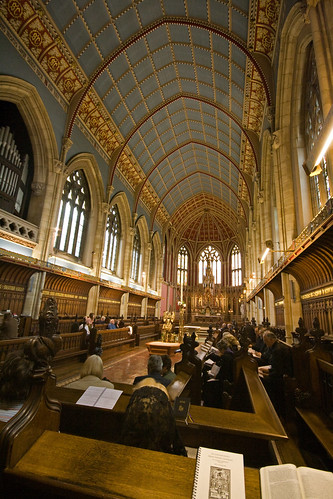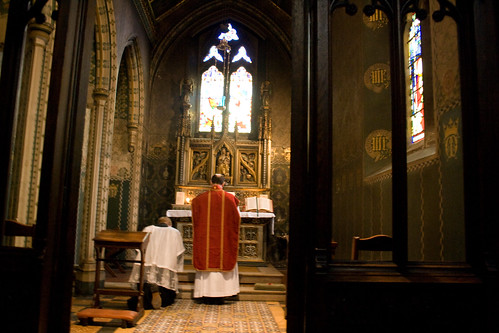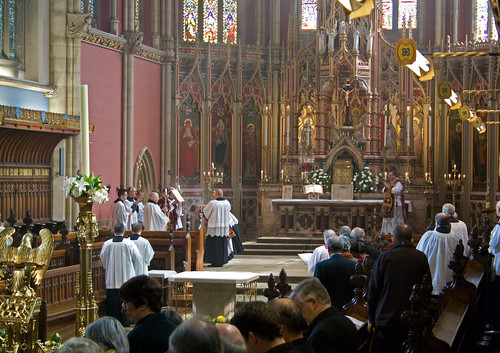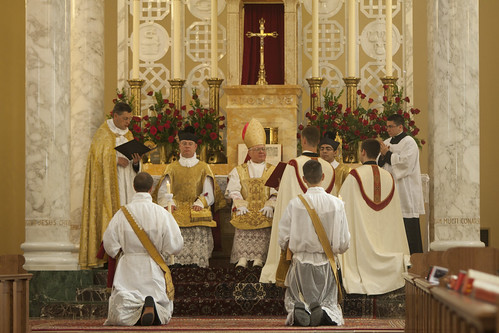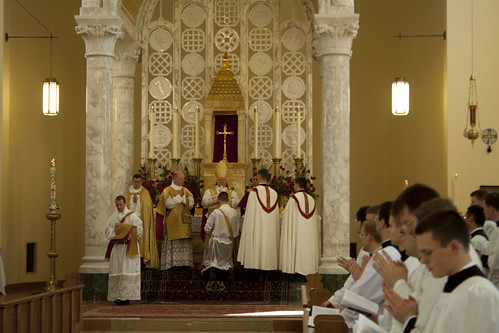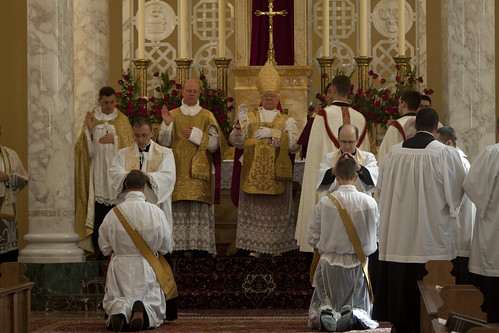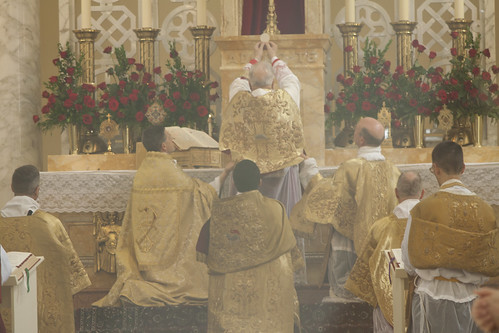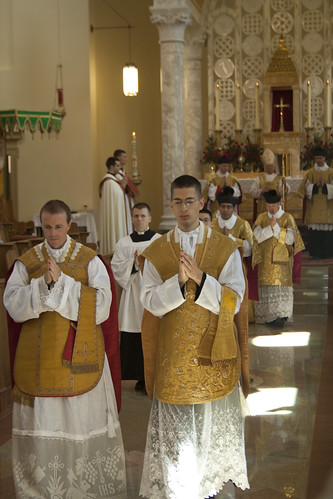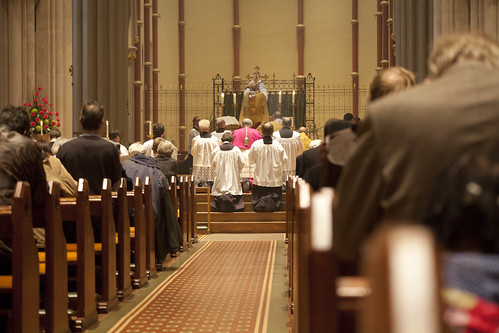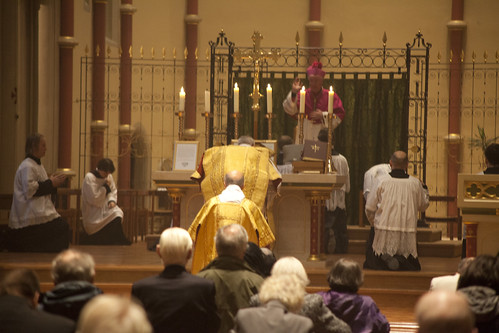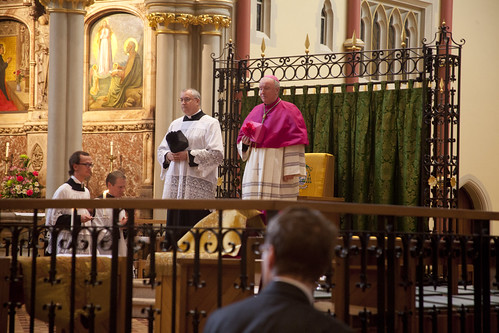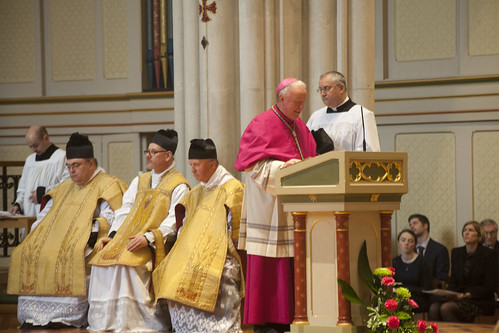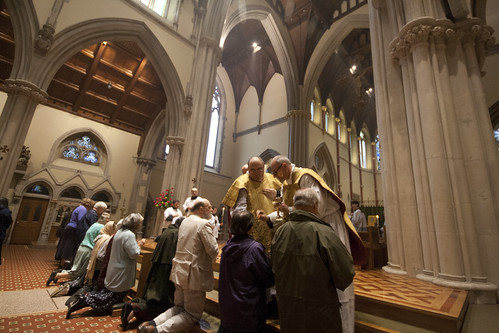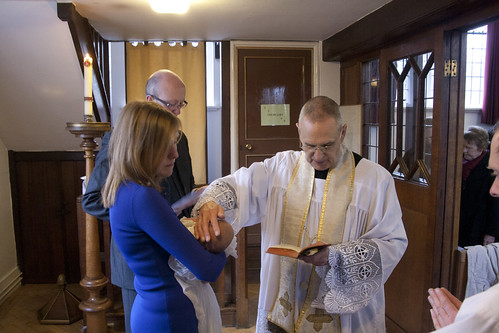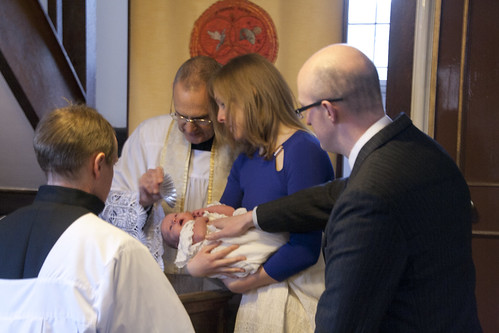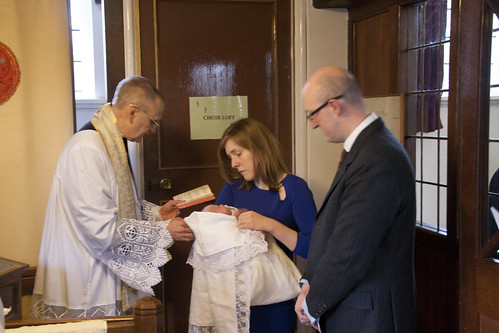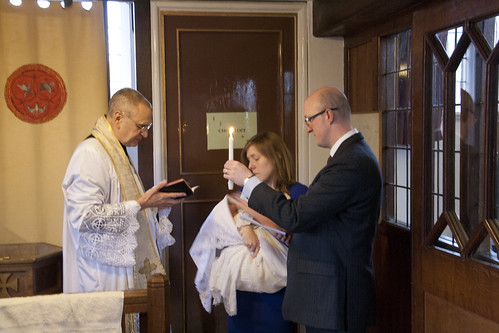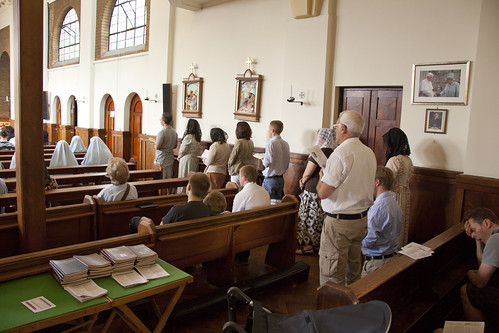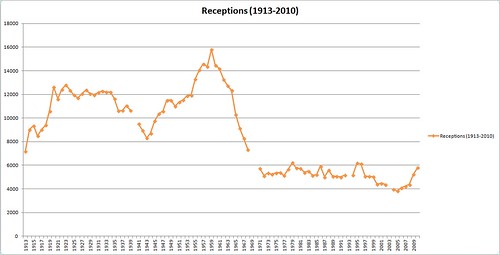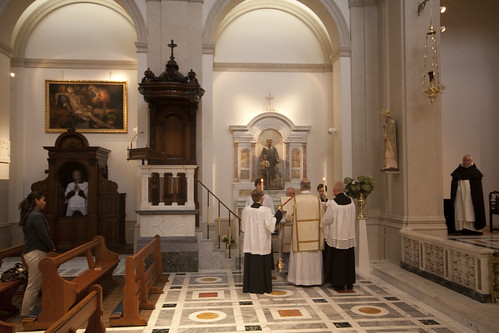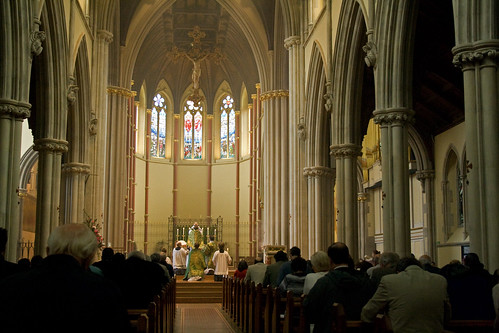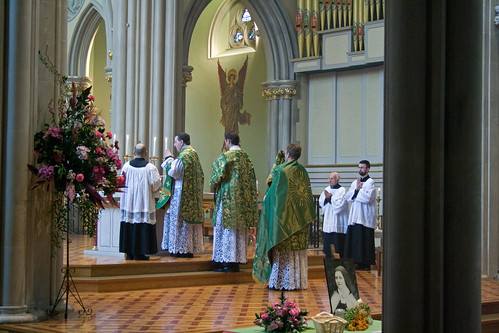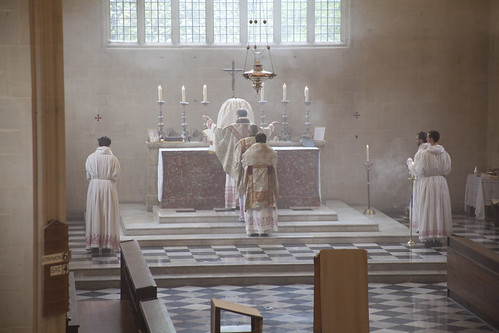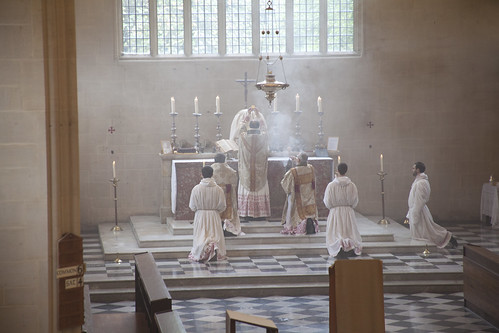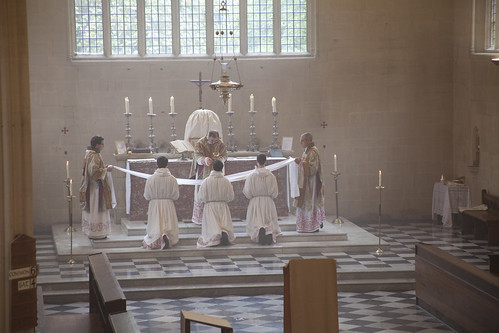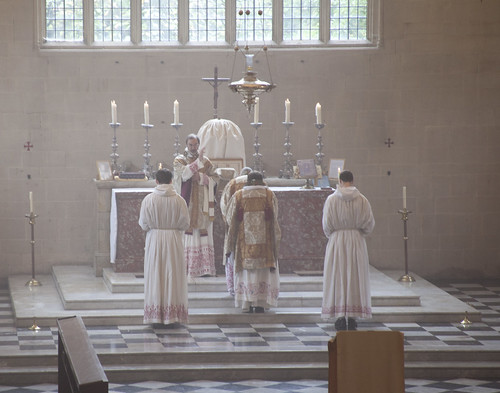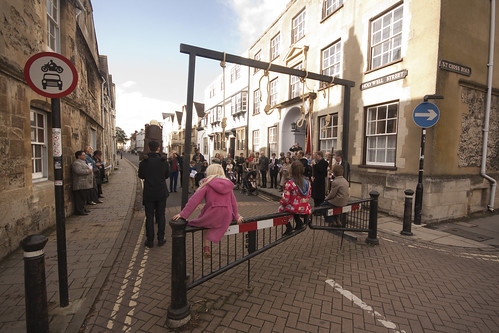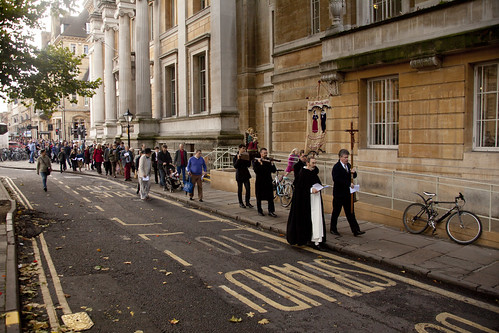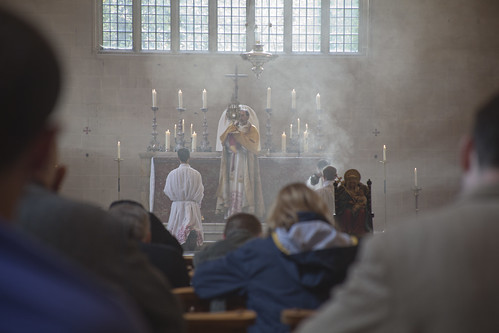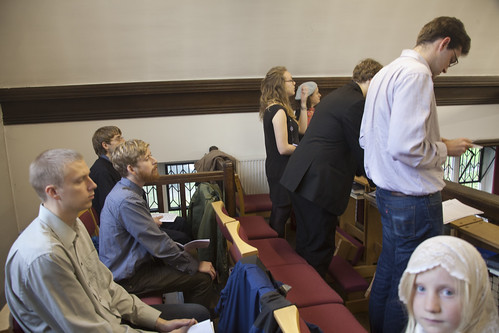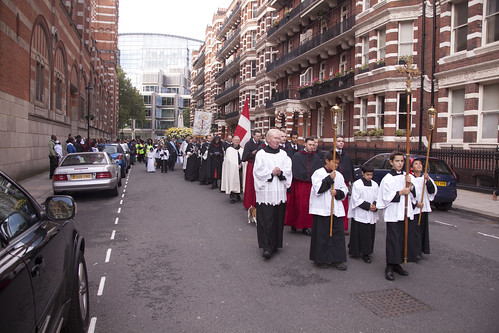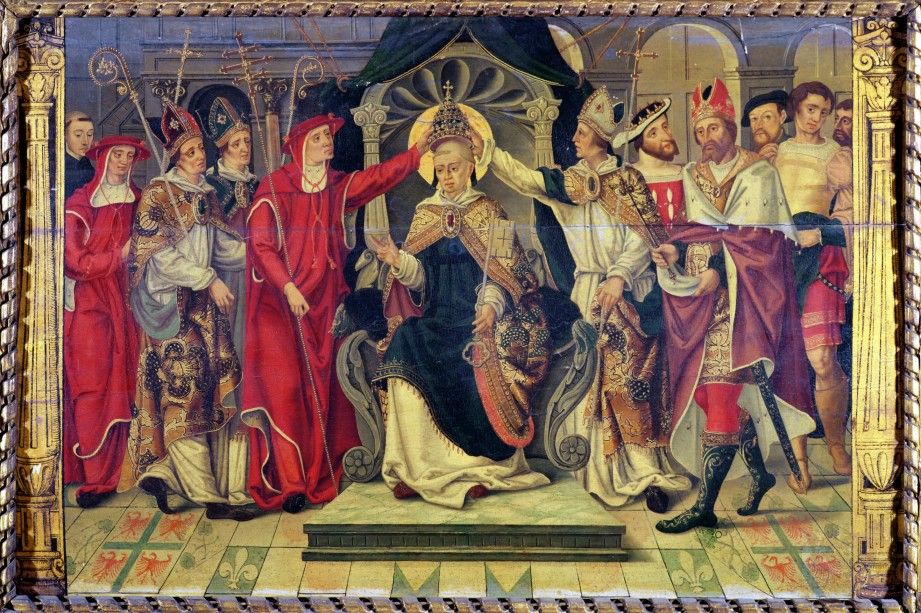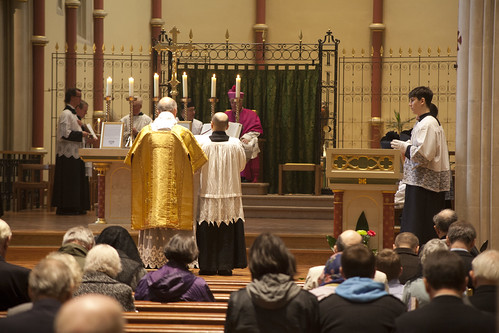 |
| The Epistle at the Portsmouth Mass presided over by Bishop Egan |
This is from his column of 15th September.
God did not 'dictate' what he revealed; he inspired the sacred writers who then expressed the revealed truth in their own words - and those words are human and fallible. Pope Benedict in his apostolic exhortation Verbum Domini could not stress too emphatically that it is the spiritual and not the literal sense and meaning of those words which we have to grasp and understand.
...
Not many people realise that in the Church a community can make its own laws by observing a custom for long enough. If a community's actions are inherently reasonable they can become law, even though they run contrary to an existing law...
These two brief quotations are both extraordinary in how they twist the teaching and legal principles of the Church. On the first, of course Pope Benedict's Verbum Domini says nothing of the kind; no Biblical scholar known to science would tell us to ignore the 'literal sense', that is always the starting point of exegesis. What Pope Benedict said about revelation is simply to reiterate the teaching of the Church: while the human author is real, and not just a lifeless tool, God is also the author of the text, yes of those human words. This teaching is that there is nothing in the sacred text which is in error, and nothing there which the Holy Ghost did not want there. I append some key quotations below.
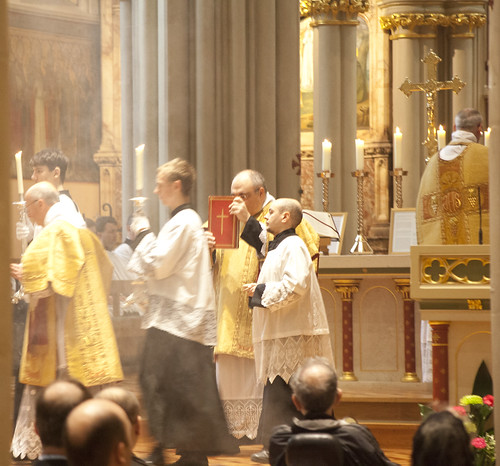 |
| The Gospel procession |
On law, reality is, as usual, diametrically opposed to what Loftus wants his readers to conclude. A custom contra legem can only become law if the legislator allows it to. It is impossible, therefore, that his favourite liturgical abuses should become lawful when the competent authorities repeatedly condemn them. After all, perhaps there was some point in all those documents, so widely ignored, emanating from successive Popes and from the Congregation for Divine Worship: they make it impossible to argue that abuses have become established as customs. On giving the Chalice indiscriminately and to large congregations, for example, something I've been researching, it is terribly widespread but this make no difference. Thirty or forty years of complaisance from the legislator is needed for it to become lawful, whereas it has in fact been condemned in 1970 (Sacramentali Communione), 1980 (Inaestimabile donum 12) and 2004 (RedemptionisSacramentum 102), as well as in each successive edition of the General Instruction of the Roman Missal (1970 section 242; 1974, 2002 Section 283). Loftus is well aware of all this, but he would like his readers to come to believe a false argument with just enough legal jargon and gobblegook to make it sound plausible.
-----
Pope Benedict, Verbum Domini 19: A key concept for understanding the sacred text as the word of God in human words is certainly that of inspiration. Here too we can suggest an analogy: as the word of God became flesh by the power of the Holy Spirit in the womb of the Virgin Mary, so sacred Scripture is born from the womb of the Church by the power of the same Spirit. Sacred Scripture is “the word of God set down in writing under the inspiration of the Holy Spirit”.[66] In this way one recognizes the full importance of the human author who wrote the inspired texts and, at the same time, God himself as the true author.
This comes straight out of the Second Vatican Council, whose decree on Scripture does not make for comfortable reading by the likes of Mgr Loftus.
Dei Verbum (Vat II) 11: Therefore, since everything asserted by the inspired authors or sacred writers must be held to be asserted by the Holy Spirit, it follows that the books of Scripture must be acknowledged as teaching solidly, faithfully and without error that truth which God wanted put into sacred writings for the sake of salvation.
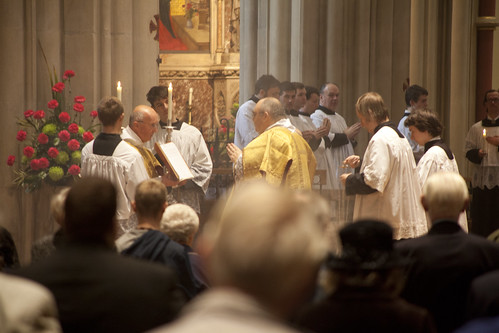 |
| The Gospel proclaimed. |
This in turn is on all fours with Vatican I.
Dei Filius (Vat I) 8: Now since the decree on the interpretation of Holy Scripture, profitably made by the Council of Trent, with the intention of constraining rash speculation, has been wrongly interpreted by some, we renew that decree and declare its meaning to be as follows: that in matters of faith and morals, belonging as they do to the establishing of Christian doctrine, that meaning of Holy Scripture must be held to be the true one, which Holy mother Church held and holds, since it is her right to judge of the true meaning and interpretation of Holy Scripture.
9. In consequence, it is not permissible for anyone to interpret Holy Scripture in a sense contrary to this, or indeed against the unanimous consent of the fathers.
The other day Loftus was praising Pope Leo XIII for encouraging Biblical scholars to be less hide-bound. This is what he actually said (inter alia).
Providentissimus Deus Leo XIII (1893) The Holy Ghost Himself, by His supernatural power, stirred up and impelled the Biblical writers to write, and assisted them while writing in such a manner that they conceived in their minds exactly, and determined to commit to writing faithfully, and render in exact language, with infallible truth, all that God commanded and nothing else; without that, God would not be the author of Scripture in its entirety.

